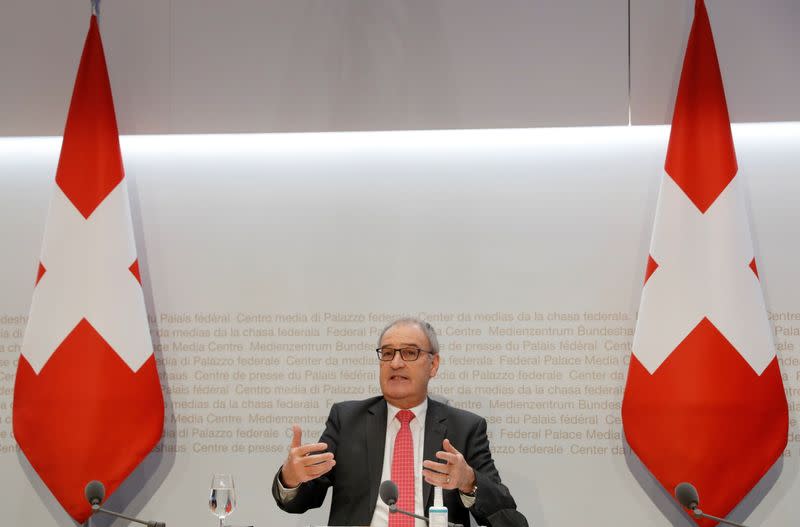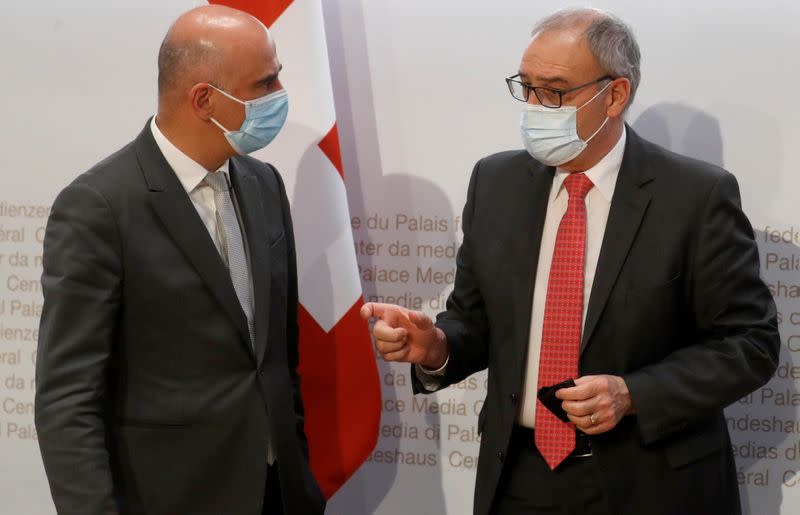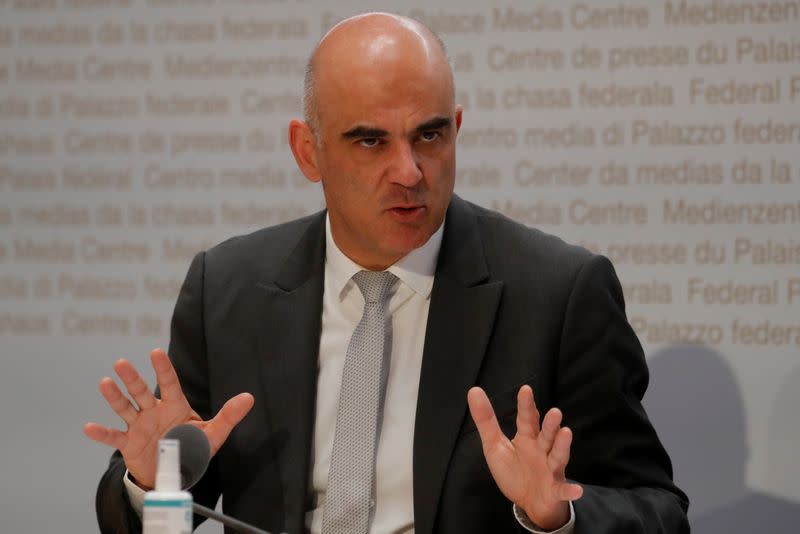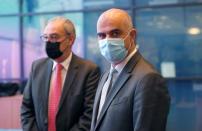Swiss consider tightening anti-coronavirus restrictions
ZURICH (Reuters) - Switzerland is considering tighter restrictions to contain the rising number of new COVID-19 cases and the emergence of the Omicron variant, the government said following an emergency meeting on Tuesday.
The government will consult with local authorities on whether to make COVID-19 certificates -- which provide proof of COVID-19 vaccination, recovery or a negative test -- compulsory for all indoor events, removing the current exemption for meetings of up to 30 people.
Under the proposed rules, a COVID certificate would also be needed to attend private gatherings of 11 people or more, and outdoor events with 300 people or more.
Masks would have to be worn in all publicly accessible indoor areas, said the government, which is seeking a response by Wednesday evening.
Switzerland's approach contrasts with neighbouring Austria, which ordered a total lockdown last week.
Switzerland has been battling an increase in the number of coronavirus cases in recent days, which has led to a tightening of entry restrictions from 19 countries including Japan, Britain and South Africa.
The number of new cases has increased by 86,000 since Nov. 15, with the daily number of laboratory confirmed infections similar to the peak levels during October and November 2020.
The first probable case of the Omicron variant of COVID-19 has also been detected in Switzerland, the government said late on Sunday, after Swiss voters backed the government's pandemic response in a referendum.
With the new proposals, the government said it was aiming to reduce the ongoing circulation of the Delta variant, while also slowing Omicron's spread which could jointly overload hospitals.
"The combination of a rapid circulation of the Omicron variant and the already high strain on hospitals could be problematic," the government said in a statement.
Workplace measures are also under discussion, including a requirement for all employees to wear masks indoors and ordering either all staff or only those who are neither vaccinated nor recovered to work from home.
The government also proposed reducing the validity of tests to show people are free of the virus to 48 hours from 72 hours currently.
The measures, if approved, will run until Jan. 24.
(Reporting by John Revill; editing by Brenna Hughes Neghaiwi)

 Yahoo Finance
Yahoo Finance 









